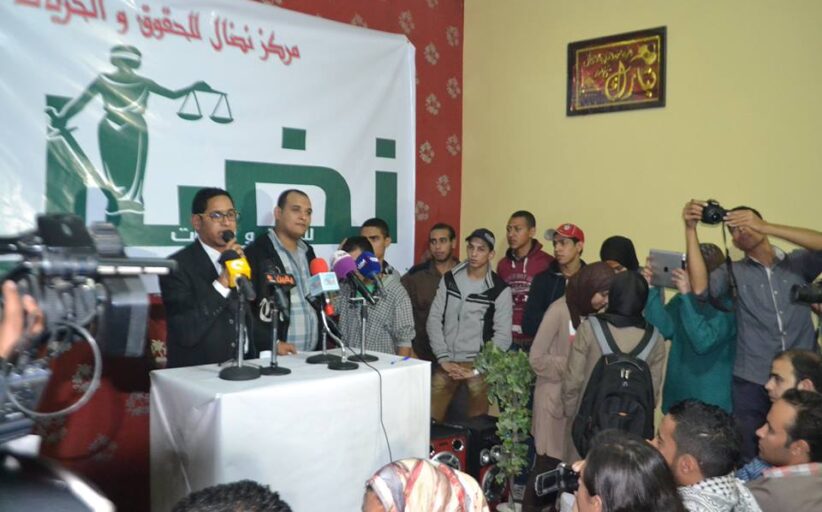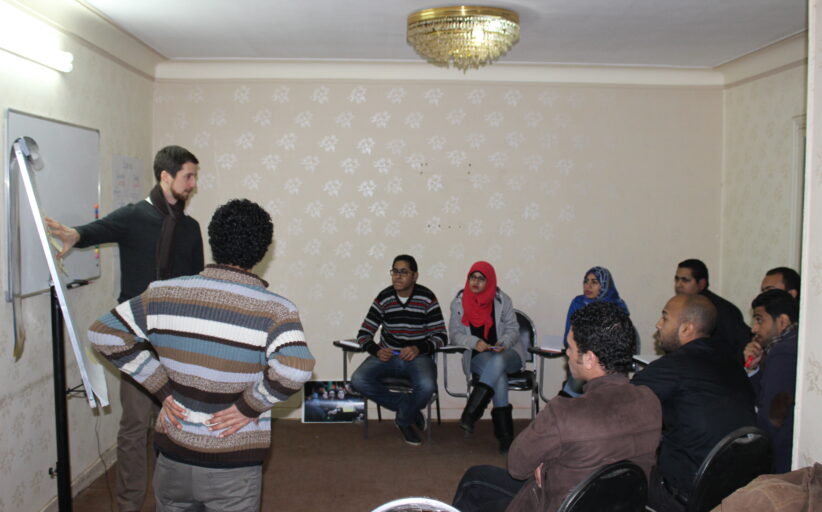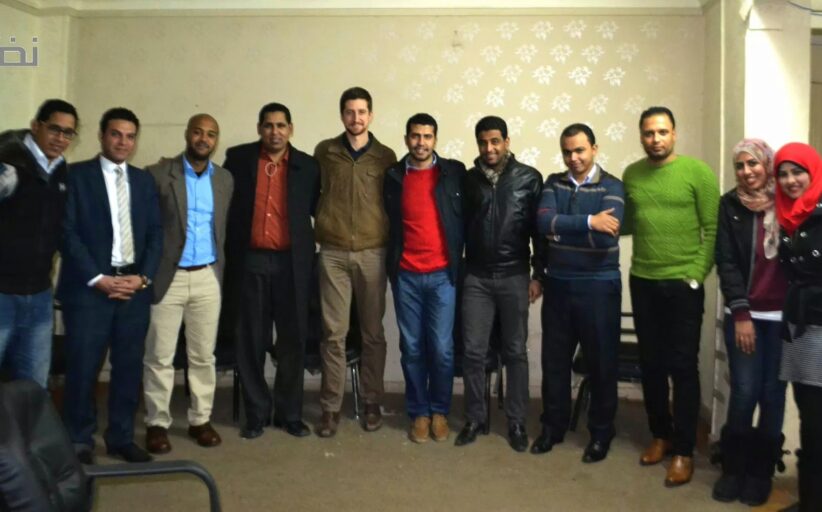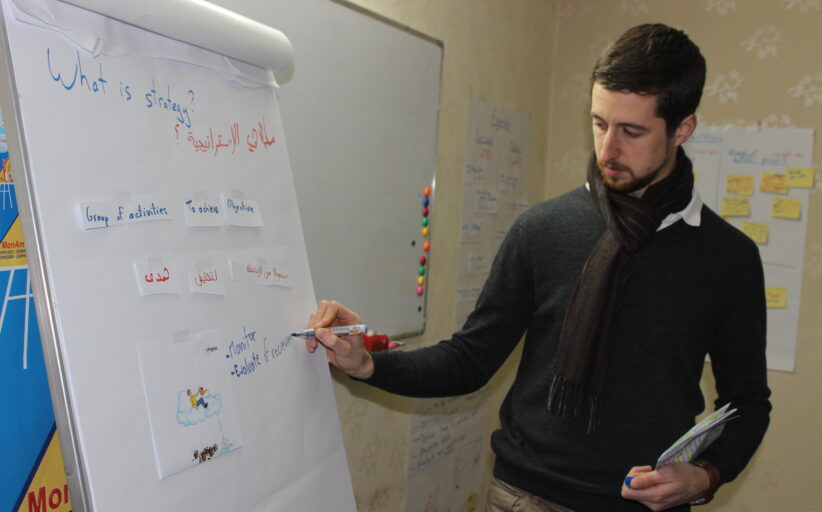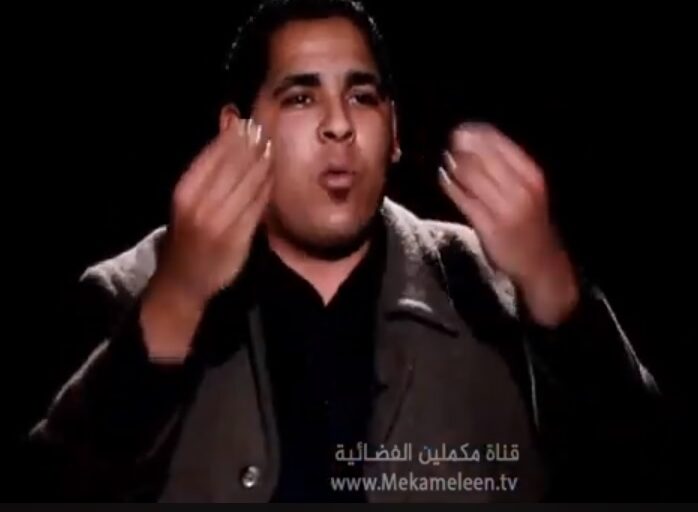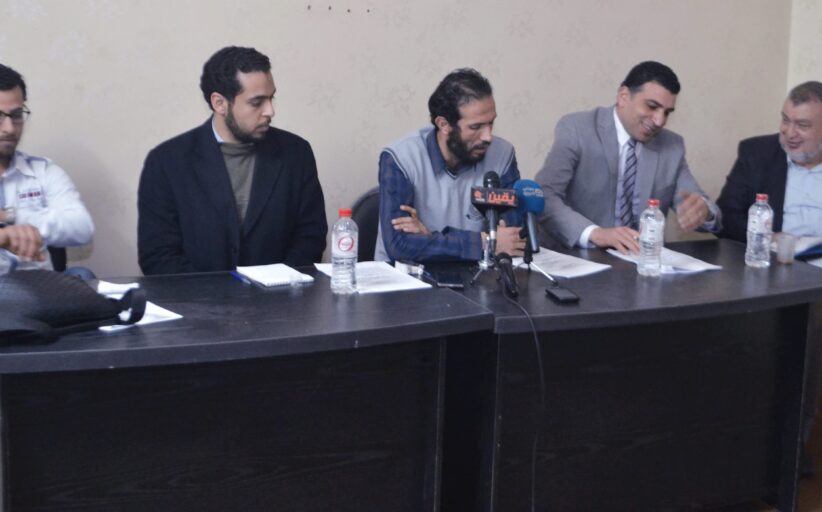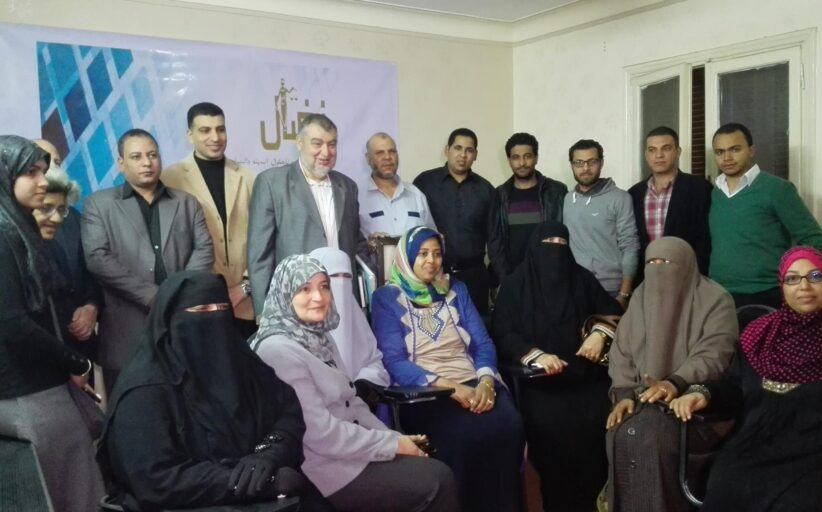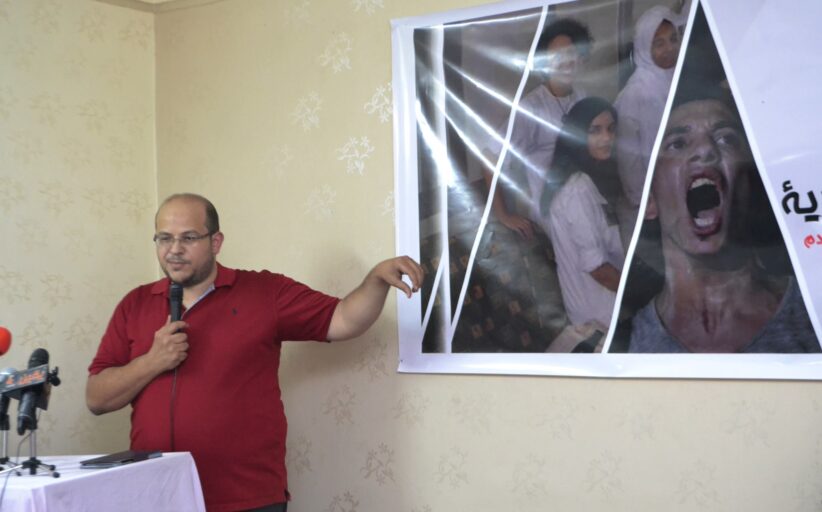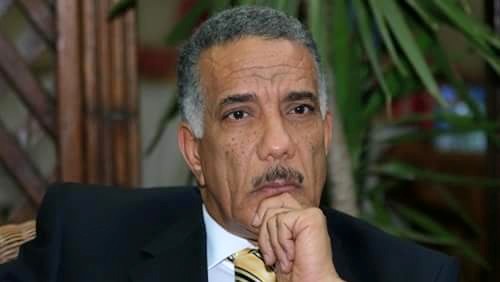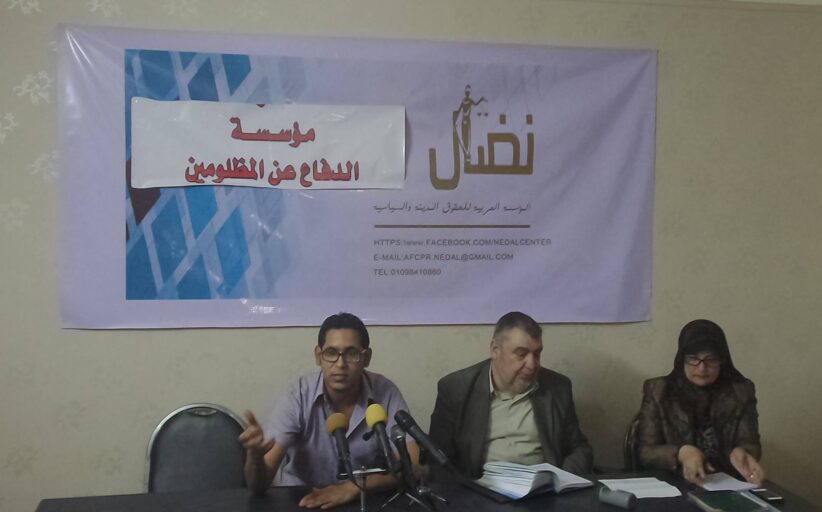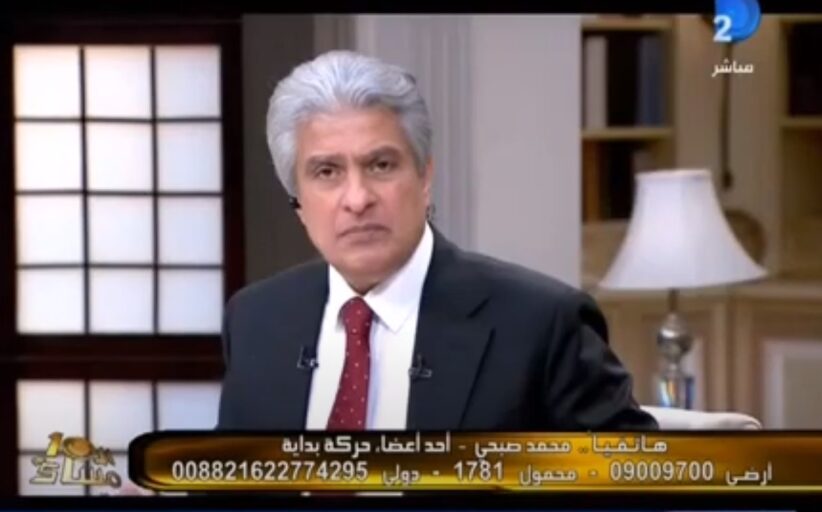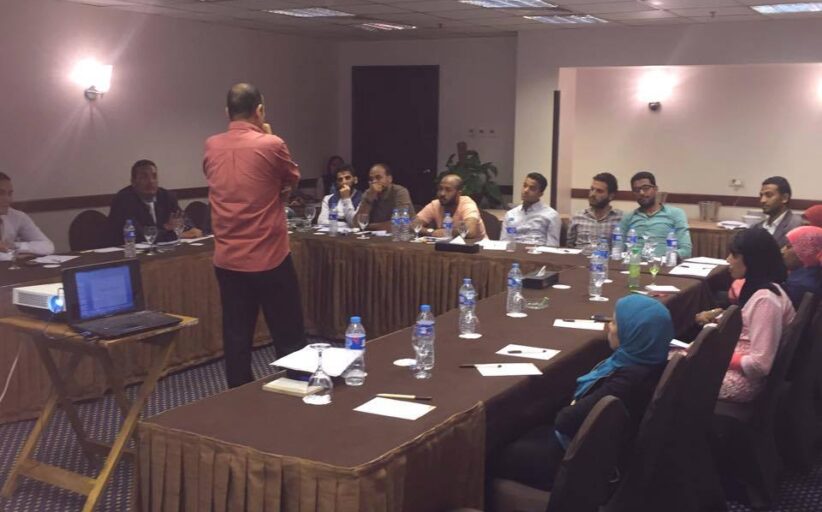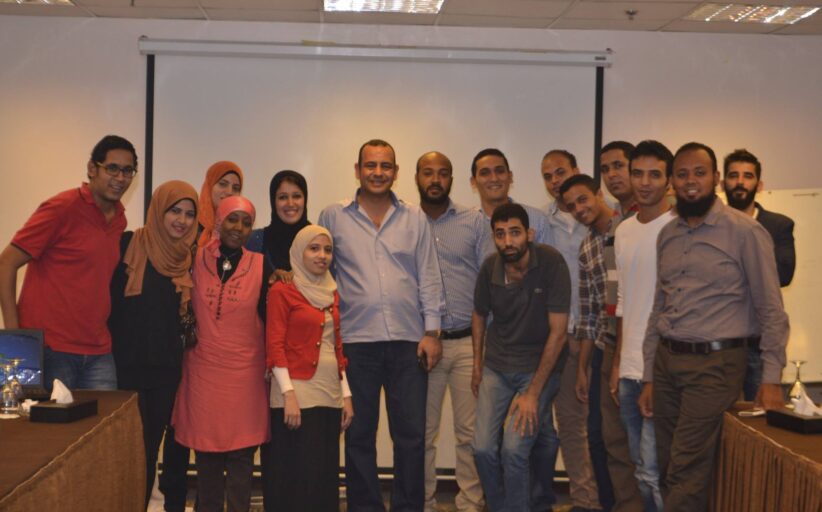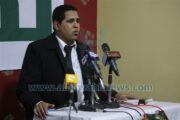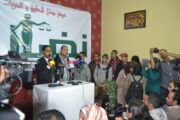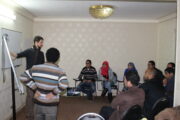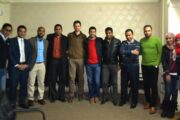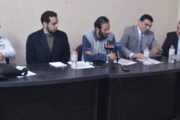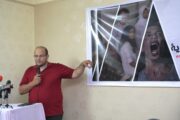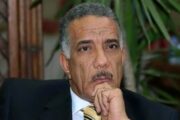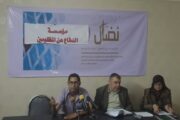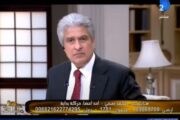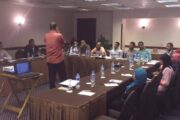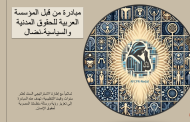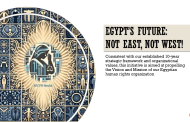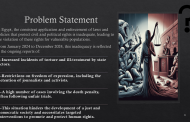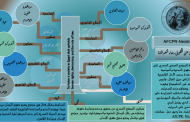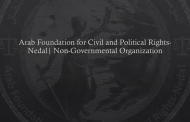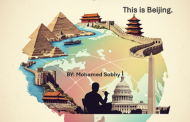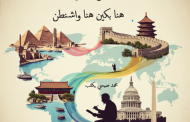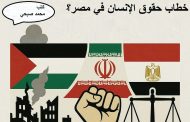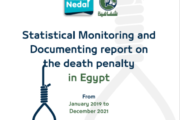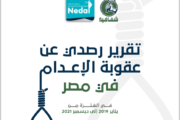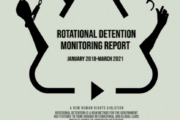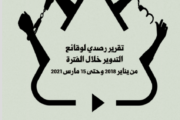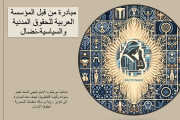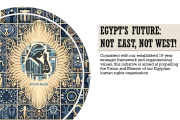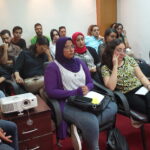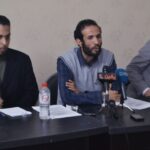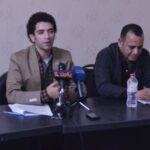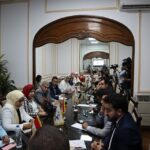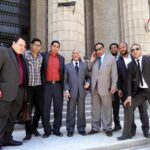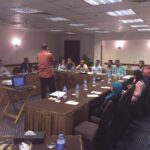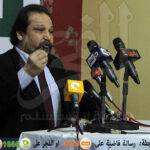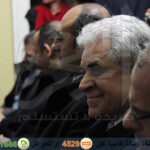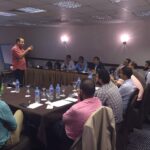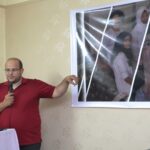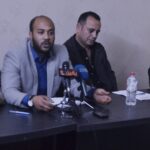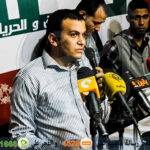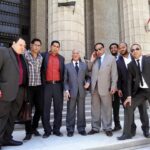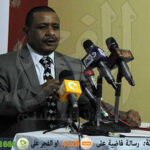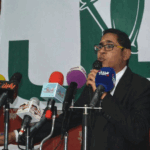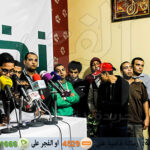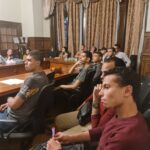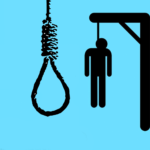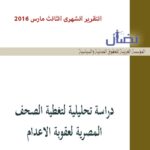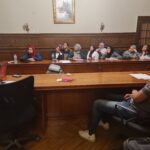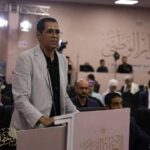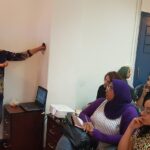لا استبداد ولا تبعية: مصر حرة ديمقراطية! اقرأ المزيد
Ultimately, this Initiative will lead to A more politically astute and engaged generation of Egyptian youth and women who actively demand and work towards a form of democracy that is rooted... اقرأ المزيد
How Are Authoritarian Models Marketed in Egyptian Discourse? In recent years, a new tone has begun to creep into official and media discourse in Egypt: that Western democracy “does not... اقرأ المزيد
كيف تُسوَّق النماذج السلطوية في الخطاب المصري في السنوات الأخيرة، بدأت نغمة جديدة تتسلل إلى الخطاب الرسمي والإعلامي في مصر: أن الديمقراطية الغربية “لا تناسبنا”، وأن هناك... اقرأ المزيد
AFCPR-Nedal is a non-governmental organization (NGO) and law firm certified by the Bar Association in Egypt, authorized to operate within the country. Founded in 2014 by a group of young hum... اقرأ المزيد
When crisis strikes, the first casualty is often truth, swiftly followed by human rights. Authorities instinctively invoke “security,” “stability,” and “resilie... اقرأ المزيد
From Cairo… This is Beijing From Cairo… This is Washington By: Mohamed Sobhy Egypt Caught in the Fire of Values and Political Models In a world heading toward open conflict bet... اقرأ المزيد
بقلم محمد صبحي في عالمٍ يتجه نحو صراع مفتوح بين القوى الكبرى، وأقطاب متعددة تعلن انتهاء زمن القطب الواحد لم تعد القاهرة مجرّد عاصمة لدولة إقليمية، بل باتت ساحة يتقاطع في... اقرأ المزيد
في لحظات الأزمات، تميل المجتمعات والسلطات إلى تقديم “الأمن”، أو “الاستقرار”، أو “الصمود” كأولوية قصوى، تُبرِّر تأجيل أو قمع أي مطالبة بالحقوق والحر... اقرأ المزيد
By: Mohamed Sobhy, Lawyer
The Middle East is in constant turmoil. From the ongoing war and genocide in Gaza to the recent “Twelve-Day War” between Israel and Iran, regional priorities have been reshuffled. This begs a critical question for Egypt: How have these tensions impacted its human rights discourse? Are they a cover to sideline human rights demands, or a tool to reshape Egypt’s international image?
Shifting Priorities: From Rights to Security
In Gaza, the humanitarian crisis and popular Arab solidarity are met with Egypt’s narrative of “national alignment” and a “common enemy.” Concurrently, the escalation with Iran shifts focus to security threats. As these crises intensify, human rights have receded from public and political view, replaced by priorities of “national security” and “internal stability.”
This has eased international pressure on Egypt regarding political detainees and restricted freedoms. With the upcoming parliamentary elections, official discourse now emphasizes:
- Stability First: Prioritizing order over civil and political rights.
- The External Enemy: Using Israel and Iran to justify a tightening security grip.
- Egypt’s Leadership Role: Presenting itself as a regional mediator to polish its image, amidst evident Western double standards.
Exploiting Crises: Justification for Repression
The Egyptian state is actively exploiting these crises to justify repression. Key indicators include:
- Silencing Dissent: The state has aggressively shut down critical spaces, citing the need to “not distract the domestic front.” This pretext has enabled the stifling of independent dialogue, and the quiet suspension of the national dialogue platform once cynically used to project an image of openness to the international community.
- Reviving “homeland in danger” rhetoric: This justifies pervasive surveillance and control of digital and media spaces.
- Targeting dissent: Activists, demonstration participants (even those supporting Palestinians), and opposition figures from previous elections face prosecution and harassment. This occurs with clear, perhaps deliberate, international disregard, as major capitals are “preoccupied with wars.”
Foreign Policy Shift: Security Over Reform
Western countries, previously critical of Egypt’s human rights record, now focus on its role in controlling the Gaza border and preventing escalation. Viewing Egypt as a “regional stabilizing factor” against Iranian influence, they’ve eased human rights pressure, fearing the loss of this “pivotal role.” Egypt’s foreign political legitimacy has shifted from being linked to reform to being tied to its security function.
Who Pays the Price?
The cost of this shift is borne by:
Human rights defenders: Facing unprecedented international silence.
Civil society: Suffering from weak support and severe restrictions.
Ordinary citizens: Besieged by fear, their basic rights are overlooked.
Human rights discourse is being redefined as a “Western luxury” unsuitable for current circumstances. While regional concerns are legitimate, Egypt’s political exploitation of the Gaza and Iran tensions has obscured rights and freedoms, creating a more closed environment. The challenge remains for independent voices and civil society to remind all that human rights are not frozen in crises but rather tested by them.
تعيش المنطقة في حالة غليان مستمر، من الحرب المفتوحة والإبادة في غزة، إلى التصعيد بين إسرائيل وإيران فيما عرف بحرب الإثني عشر يوما ، وهو ما أعاد ترتيب أولويات كثير من الدول، وم... اقرأ المزيد
من الاسئلة الشائعة حول عقوبة الاعدام التأييد الشعبي القوي لعقوبة الإعدام غالباً ما يقترن بنقص المعلومات الموثوق بها بشأنها– وغالباً ما يتمثل هذا في الاعتقاد خطأً أنها ستقلل الجريمة. وتسارع ك... اقرأ المزيد



